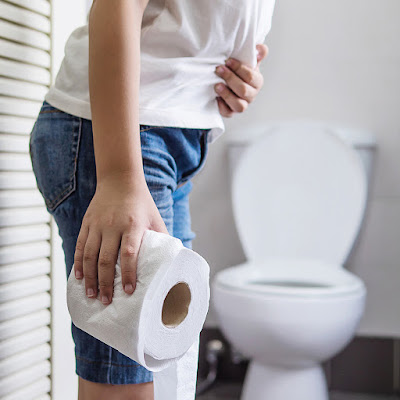Chronic constipation is a common issue that many individuals experience. Various factors, including diet, lifestyle habits, medication side effects, and underlying health conditions, can cause it. Regardless of the cause, chronic constipation can be uncomfortable and disruptive to an individual's daily routine. Fortunately, there are several treatment options available to manage chronic constipation.
Best Medicine for Chronic Constipation:
When it comes to managing chronic constipation, several types of medications can be effective. Laxatives are one of the most commonly used types of medication to treat constipation. Laxatives work by increasing the water in the stool, making it easier to pass. Several different types of laxatives include osmotic laxatives, bulk-forming laxatives, stimulant laxatives, and stool softeners.
Osmotic laxatives, such as magnesium citrate and lactulose, work by drawing water into the bowel, which softens the stool and makes it easier to pass. Bulk-forming laxatives, such as psyllium and methylcellulose, work by absorbing water in the intestine, which adds bulk to the stool and stimulates the bowel to move. Stimulant laxatives, such as bisacodyl and senna, work by stimulating the muscles in the colon to contract, which helps move stool through the bowel. Stool softeners, such as docusate sodium, add moisture to the stool, making it easier to pass.
While laxatives can be effective in treating chronic constipation it is Best Medicine for Chronic Constipation, it is essential to use them only as directed and under the guidance of a healthcare professional. Overuse of laxatives can lead to dependence, electrolyte imbalances, and other complications.
Cure for Chronic Constipation:
While there is no "Cure" for Chronic Constipation, there are several steps individuals can take to manage their symptoms and improve their bowel function. One of the most effective ways to manage chronic constipation is through diet and lifestyle changes.
A high-fiber diet can help promote regular bowel movements and prevent constipation. Foods rich in fiber include fruits, vegetables, whole grains, and legumes. Individuals should consume at least 25-30 grams of fiber daily. In addition to increasing fiber intake, individuals should also ensure they drink enough water. Dehydration can contribute to constipation, so drinking at least 8-10 glasses of water per day is essential.
Regular exercise can also help promote bowel regularity. Exercise helps stimulate the muscles in the colon, which can help move stool through the bowel. Aim for at least 30 minutes of moderate-intensity exercise per day.
In some cases, underlying health conditions may be contributing to chronic constipation. However, if constipation persists despite making dietary and lifestyle changes, it is essential to see a healthcare professional for further evaluation and treatment.
Treatment for Chronic Constipation:
In addition to dietary and lifestyle changes, several medical treatments are available to manage chronic constipation. As discussed earlier, laxatives can be effective in Treatment for Chronic Constipation. In addition, however, several prescription medications can be used to manage chronic constipation.
One example is lubiprostone, which increases the amount of fluid in the bowels, making it easier to pass stool. Another medication commonly used to treat chronic constipation is linaclotide, which works by increasing the activity of intestinal cells, which can help move stool through the bowel.
Surgical intervention may be necessary for individuals with severe or refractory chronic constipation. One example is a colectomy, which involves removing all of the colon. This procedure is typically reserved for individuals who have not responded to other treatment options.
For Chronic Constipation:
Chronic constipation can be a frustrating and uncomfortable condition. However, with the right treatment approach, individuals can manage their symptoms and improve their bowel function. This may include dietary and lifestyle changes, medication, and in some cases, surgical intervention.
Individuals must work closely with a healthcare professional to develop a treatment plan tailored to their needs and underlying health conditions. With the proper treatment approach, it is possible to manage chronic constipation and improve overall quality of life.
Prevention of Chronic Constipation:
In addition to treatment options, there are also steps individuals can take to prevent chronic constipation from occurring in the first place. One of the most effective prevention strategies is maintaining a healthy diet and lifestyle.
A high-fiber diet can help promote regular bowel movements and prevent constipation. Individuals should aim to consume various fruits, vegetables, whole grains, and legumes daily. In addition to increasing fiber intake, drinking plenty of water and other fluids is essential to stay hydrated.
Regular exercise can also help prevent chronic constipation. Aim for at least 30 minutes of moderate-intensity daily exercise, such as brisk walking, cycling, or swimming.
Individuals should also pay attention to their bowel habits and avoid delaying or ignoring the urge to have a bowel movement. Delaying bowel movements can make stool more complex and more challenging to pass.
Individuals experiencing chronic constipation should speak with a healthcare professional to determine the underlying cause and develop an appropriate treatment plan.
Conclusion:
Chronic constipation is a common condition that various factors can cause. While there is no "cure" For Chronic Constipation, several treatment options are available to manage symptoms and improve bowel function.
Treatment options include dietary and lifestyle changes, medication,Unani Medicine for Gastric Problem, and in some cases, surgical intervention. Prevention strategies include maintaining a healthy diet and lifestyle, staying hydrated, and exercising regularly.
Individuals experiencing chronic constipation should speak with a healthcare professional to determine the underlying cause and develop an appropriate treatment plan. With the right approach, managing chronic constipation and improving the overall quality of life is possible.


Comments
Post a Comment